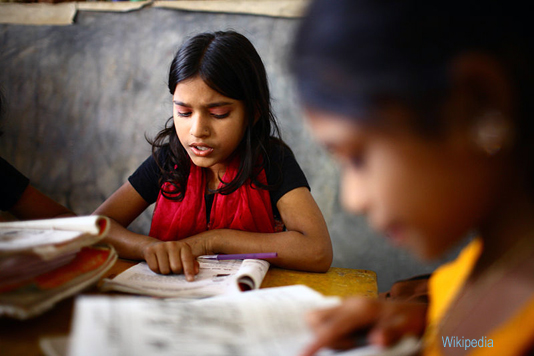By Md Morshadur Rahman
DHAKA, May 17, 2018 (BSS)-Educationists have called for allocating and mobilising more resources for education sector to ensure inclusive and equitable quality education.
Referring to the country’s significant progress in ensuring access and attaining gender parity at the primary and secondary levels of education, they said there are a lot of things to be done for taking the country’s education to a global standard.
“One major success has been the achievement of the goal of universal enrolment at the primary level. A significant decrease in school dropout rate from 40 percent 10 years ago to 18 percent today is another milestone,” Rasheda K Choudhury, executive director of Campaign for Popular Education(CAMPE), said.
She, however, suggested increasing the fiscal allocation to education as the current level of budgetary allocation for education is below than the requirement.
According to World Development Indicator (WDI) data, Bangladesh, with an education budget to the tune of 1.9 percent of Gross Domestic Product (GDP), has ranked 155 out of 161 countries in the world.
Rasheda said the World Education Forum set the Education 2030 agenda, replacing Education for All (EFA 2015), to ensure “Inclusive and Equitable quality education and promote lifelong learning opportunities for all.”
This education 2030 agenda has been reflected in Sustainable Development Goal (SDG)-4, one of the 17 SDGs, she added.
“If we want to achieve the target of SDG-4 by 2030, we must increase resource allocation and mobilization. The percentage of budgetary allocation for education should be 20 percent of the total budget,” she added.
To improve standard of education, Rasheda said, the country needs to have a stronger political commitment and appropriate strategies to implement the Nation Education Policy 2010, combined with adequate resource allocation and its judicious, transparent utilisation.
Md Sohrab Hossain, Secretary of Secondary and Higher Secondary Division, said “Bangladesh has achieved a good progress in expansion of education…. Now we have to focus on improving quality education to achieve SDG-4 goal by 2030.”
He described allocation of more funding as a global challenge for low income countries like Bangladesh.
Referring to different approaches of global platforms and organisations for allocating more funds on education, Sohrab said Bangladesh is working with different international organizations including UNESCO to mobilize domestic funds.
The Education 2030 Framework for Action set two benchmarks on domestics financing for education 4 percent to 6 percent of GDP and 15 percent to 20 percent public expenditure, he added.
“We are closely working with the Finance Ministry to increase budgetary allocation on education to achieve SDG goal-4. The government will increase budgetary allocation gradually in line with the Education 2030 Framework for Action to ensure access of all children to education along with maintaining its quality,” Sohrab added.
Md Alamgir, Secretary of Technical and Madrasah Division said, there is no alternative to increasing budgetary allocation to improve quality of education, which is considered as prime challenge of the education sector.
“We are taking many technology-based innovative approaches to ensure quality education. Alongside the government’s efforts, non-government actors must play a crucial role in improving quality education,” he added.
He said private sector should also invest more in the education sector, which eventually would produce better outcome for overall development of the country.
Despite resources constraint, the government is incorporating ICT-based education programmes from primary to tertiary level to keep up with demand- based job markets.
Manzoor Ahmed, a professor emeritus at the Institute of Educational Development of BRAC University, said Bangladesh, which has been actively in international discourse on education and development, is committed to increase resource for education.
He said generating the additional resources that will be required to finance and their proper deployment towards quality education remain major challenges for Bangladesh.
Fulfilling the agenda for education 2030 will definitely require a sustainable higher level of resources and better use of these resources in education, he added.



